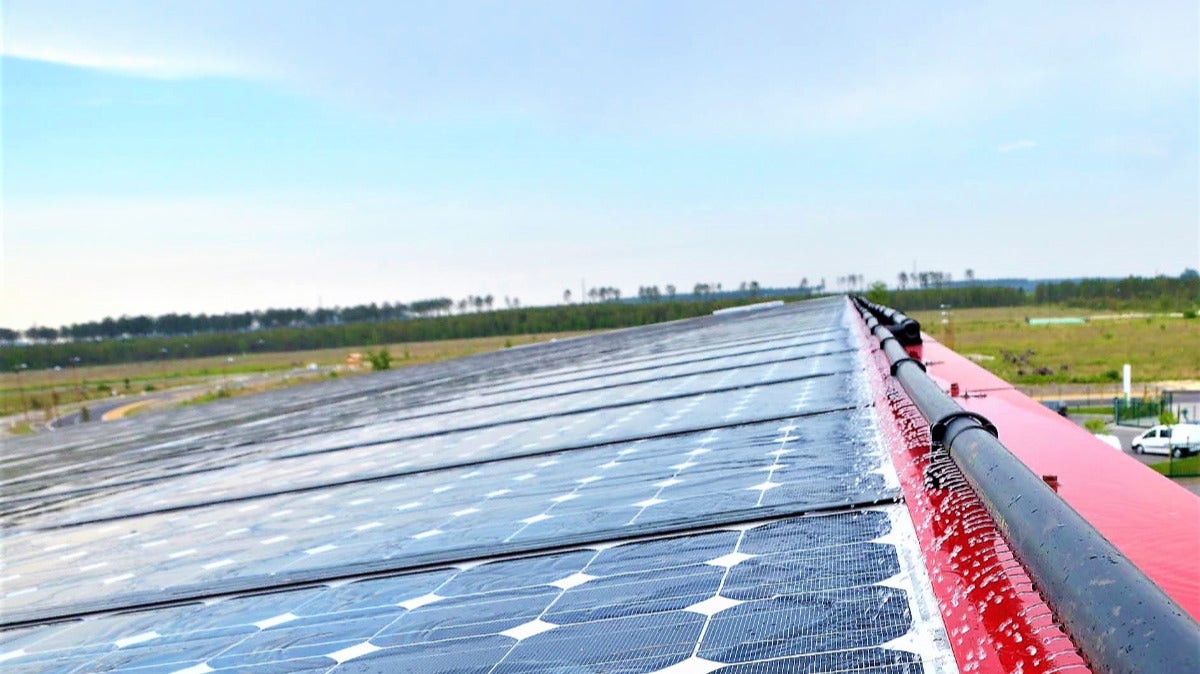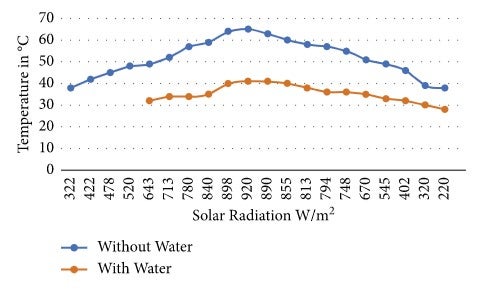
A research paper investigating water-cooling for solar panels has shown an increase in voltage change and system yield for panels in high temperatures.
Researchers from India’s PSG College of Technology and the UK’s University of Sheffield published their design in the Mathematical Problems in Engineering journal. The academics designed a system that would cool photovoltaic cells when their components reached temperatures above 45°C, at which point temperature increases lead to efficiency losses.
The experimental system used a water reservoir, pump, and a sprinkler mounted above a solar module to cool the panel. Practical experiments used a 10-year old, 36W, 24V photovoltaic solar module, and a new 37W photovoltaic module, both tested with and without water. Across both trials, the sprinkler system decreased the average temperature of the panel by up to 10°C, while maximum temperatures fell by up to 20°C.
As a result, the panels’ voltage increased by 1.5V-2V, while current decreased by 0.01A-0.03A. The greatest increase in efficiency came during the peak of the day, when the panels grew hottest. At these times, water cooling derived approximately 20% more power than an uncooled control module.

Overall, electrical efficiency of the panels increased by 1%-1.27%. When including the power needed for the water system, the solar operation became 0.5% more effective with cooling.
In one day, the panel consumed 15.6 litres of water, sprayed over the panel when its PV module exceeded 45°C. This in turn heated the water to above 30°C, which was then fed to a water heating system, improving the system’s overall efficiency.
Some companies already offer commercial-scale photovoltaic solar water-cooling systems. In December 2021, French start-up company Sunbooster raised €4.7m ($5.4m) to develop its thermal regulation system for solar panels.



